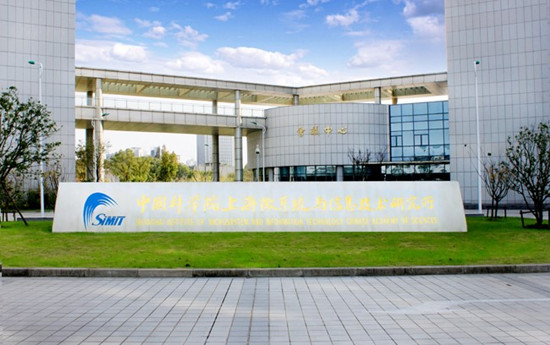The Shanghai Institute of Microsystem and Information Technology (SIMIT) of the Chinese Academy of Sciences (CAS), formerly known as the Shanghai Institute of Metallurgy, was one China's first engineering research institutions, founded in 1928.
After the establishment of the People's Republic of China, the institute became a subsidiary of the CAS. It was previously known as the CAS Engineering Lab and later the CAS Metallurgy and Ceramics Research Institute. In August 2001, it was renamed the SIMIT.
Throughout its 90 years of development, the institute has been serving strategic national needs by adjusting its scientific research layout accordingly. It plays an important role in national economic development. In the 1950s, it invented technology to refine high-fluoride iron ore. In the mid-1960s, it developed China's first PN junction isolating IC, the ECL high-speed circuit, and 8-digit and 16-digit microprocessors. In the mid-1980s, it began researching microelectronic mechanical systems and SOI materials, taking the lead in China and playing an important role internationally.
After getting involved in engineering in 1998, the institute has become an important micro-satellite research and manufacturing center by successfully launching the micro-satellites Innovation No 1's 01, 02 and 03 and Shenzhou-VII.
It has implemented the Shanghai World Expo Intrusion Prevention Sensor Network, Pudong Airport Intrusion Prevention System, Taihu Lake Water Quality Monitoring Sensor Network, South-to-North Water Diversion Middle Route Security System, and various internet of things (IoT) projects.
By carrying out IoT projects, the institute has managed to enhance key IoT technology and implement new innovations such as the Shanghai World Expo Intrusion Prevention Sensor Network, Pudong Airport Intrusion Prevention System, Taihu Lake Water Quality Monitoring Sensor Network, and South-to-North Water Diversion Middle Route Security System.
Its broadband wireless communication systems, which have independent intellectual property rights, have been used in many important domestic events, contributing to earthquake relief work, safeguarding stability and public safety, and digital city construction.
It has also founded Shanghai Simgui Technology Co Ltd, the first and only world-class advanced SOI materials manufacturer in China, whose products have filled a gap in the domestic market and have been used widely in many key projects throughout China.
Since the founding of the People's Republic of China, the institute has won 48 national science and technology awards and 351 provincial and ministerial-level awards, including the Grand Prize of the National Science and Technology Progress Award for its "Type A separation membrane" technology.
The institute currently has three key national laboratories focusing on transducer technology, functional materials for informatics, and microsystem technology. It also has two CAS labs focusing on wireless sensor networks and communications and terahertz solid-state, as well as a Center for Excellence in Superconducting Electronics, which is affiliated with the CAS.
It also has nine labs (for wireless sensor networks, nanomaterials and devices, terahertz solid-state technology, microsystem technology, IoT, broadband wireless technology, silica-based materials and integrated devices, superconductors, and bio-vision systems, respectively) and six branch organizations in surrounding cities such as Nanjing, Hangzhou, Jiaxing, and Nantong.
Its superconductivity and biological electronics joint laboratory has won praise from the German Helmholtz National Research Center and has co-built a collaborative innovation center for high-reliability components with the Shanghai Engineering Center for Microsatellites of the CAS and a joint lab on superconducting quantum devices and information with the University of Science and Technology of China.
The institute now has 674 employees, including 601 scientific and management personnel and 105 researchers and senior engineering technical personnel. It has two CAS academicians, one US Academy of Science foreign fellow, four winners of the "National Outstanding Young Science Fund", 10 special experts employed by the State, and 11 leaders of science and technology in Shanghai.
The institute is one of the first to grant PhD and master's degrees approved by the State Council. It now has two first-grade doctoral/master's disciplines on electronic science and technology and information and communication engineering, a second-grade doctoral/master's discipline on materials physics and chemistry, and two first-grade doctoral research stations on electronic science and technology and materials science and engineering. It currently has a total of 482 students, including 245 postgraduates and 237 PhD students.
As the end of the 13th Five-Year Plan approaches, the institute will is sparing no efforts to leverage its traditional strengths in electronic science and technology and information and communications engineering and is aiming to contribute more to help the country become a world leader in innovation, science, and technology.
Address: 235 Chengbei Rd, Jiading district, Shanghai
Postal code: 200050 Tel: 86-21-62511070
Fax: 86-21-62524192
E-mail: simit@mail.sim.ac.cn
Official website: http://english.sim.cas.cn/Home2017/
 |
|
The Shanghai Institute of Microsystem and Information Technology of the Chinese Academy of Sciences [Photo/sim.cas.cn] |

